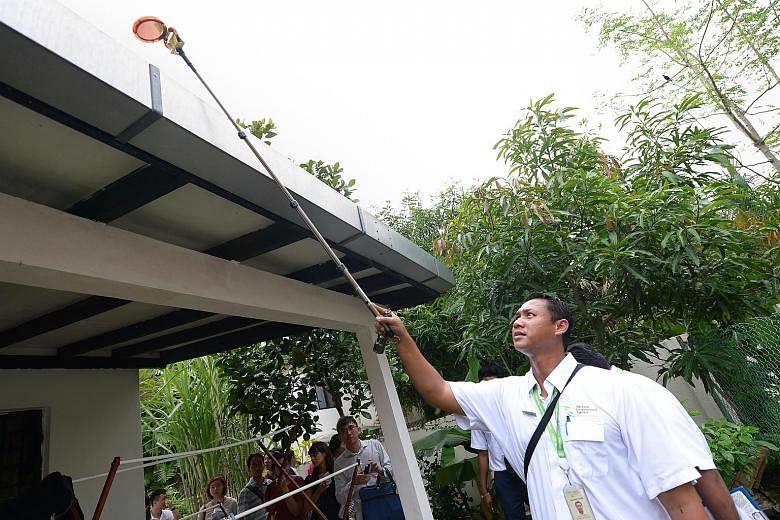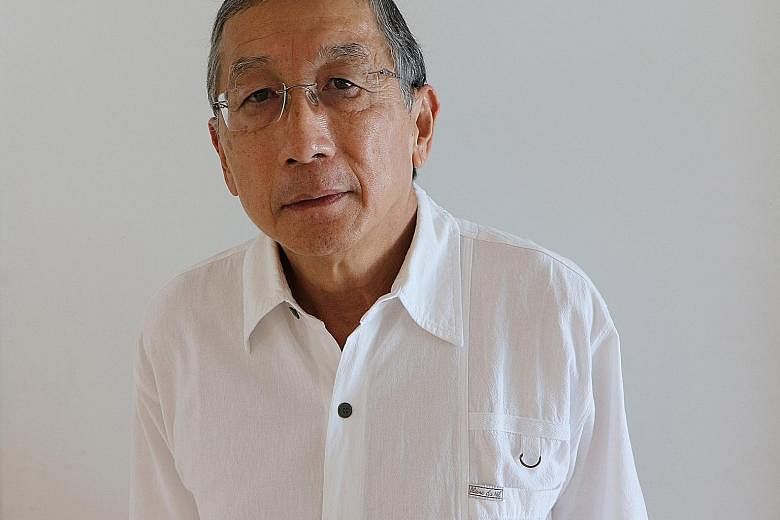The world's only existing dengue vaccine is not perfect, and dengue expert Tikki Pang is the first to admit that. It is only around 50 per cent effective against the two strains most commonly found here, and 75 per cent effective against the other two strains.
Even then, Professor Pang believes Singapore should give serious thought to making this vaccine available here as soon as possible.
"Even a partially effective vaccine is better than none," said Prof Pang, who is a visiting professor at the Lee Kuan Yew School of Public Policy at the National University of Singapore.
"We have waited more than 40 years for this vaccine. How much longer do we plan to wait?"
The available evidence, he added, suggests that the vaccine could prevent eight in 10 hospitalisations due to the mosquito-borne virus here, and nine in 10 cases of severe infection.
Developed by pharmaceutical company Sanofi-Pasteur, the new vaccine - called Dengvaxia - has been tested in more than 30,000 children aged two to 16 years, across 10 countries in Asia and Latin America.
Recently, it was approved for use in four countries - Brazil, Mexico, the Philippines and El Salvador.
The World Health Organisation (WHO) is currently studying the scientific evidence in order to come up with international recommendations for the vaccine's use. Here, the Health Ministry and Health Sciences Authority, which regulates health products, have said they are "actively tracking" the vaccine.
Last month, the National Environment Agency (NEA) warned that Singapore could see its worst dengue outbreak this year, with a perfect storm of factors threatening to push numbers over the 30,000 mark. These include the warmer weather - providing perfect breeding conditions for mosquitoes - as well as a switch in the predominant dengue strain.
In response, the authorities have stepped up inspections and public education campaigns, and are also rolling out more traps to try and keep the mosquito population under control.
These are among the many things that Singapore has done well in the fight against dengue, said Prof Pang, who was also director of research policy and cooperation at the WHO from 1999 to 2012.
"For example, physicians are very aware of how to take care of those who have dengue, and our mortality rate is very low," he said.
"Singapore has also invested in dengue research, which will benefit not just us, but the whole region."
Even if the dengue vaccine is not foolproof, it would cut down on the dengue numbers and help to relieve some strain on hospitals and general practitioners, as well as reduce the number of work days lost when people are infected by the virus, Prof Pang said.
"And serotypes (strains) change all the time. You cannot predict what's going to happen in six months," he added.
Many things are still unknown about the new vaccine, such as how long its protection will last or whether the virus will mutate and render the vaccine ineffective.
While a few other dengue vaccines are in the works, it will be several years before they are ready.
"You have to build this ship as you sail it," Prof Pang said. "Why? Because of the public health urgency. I'm the first to admit that (the vaccine) is only partially effective, but it's the best we have."




